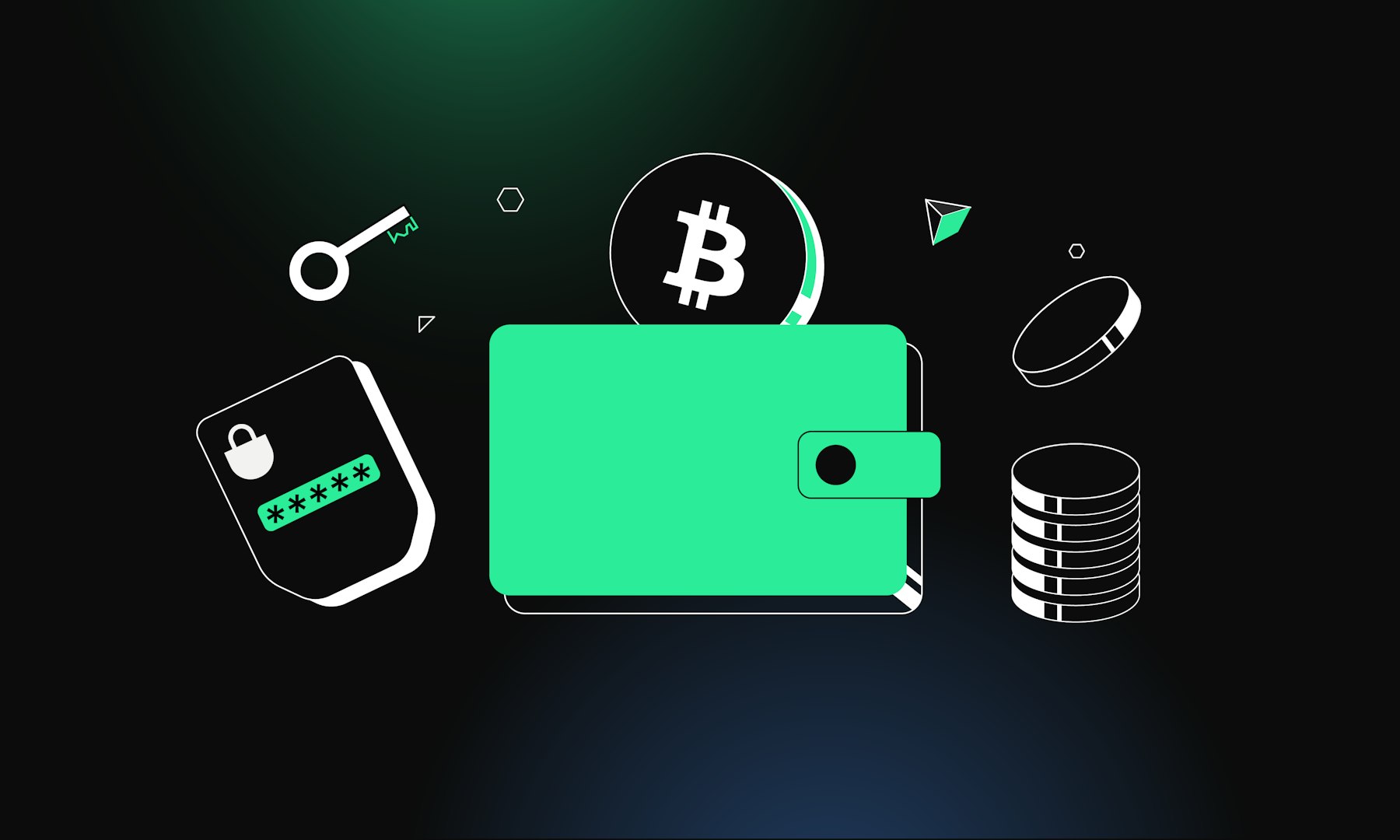Create a wallet for Bitcoin – but which one?
Before you can create a Bitcoin wallet, you need to know which type of wallet suits you best. There are different options, varying in security, access and control over your BTC. The most important decision is: do you want a wallet with full control over your Bitcoin or a solution that’s easier to manage?
Basically, there are two types of Bitcoin wallets: custodial and non-custodial.
Custodial wallets are managed by a provider. You don’t need to manage your keys yourself – but you also have less control over your Bitcoin (BTC).
With non-custodial wallets, the responsibility lies entirely with you. You manage your own keys, giving you full control and greater security – but also more personal responsibility. The right wallet depends on security, access and features. There are several types, each offering different advantages.
Hardware wallets
A hardware wallet for Bitcoin offers the highest level of security, as it stores private keys offline. This protects your BTC from hacking and malware. This type of Bitcoin wallet is particularly suitable for users who want to securely store larger assets long term.
Instead of storing your keys on an internet-connected device, a hardware wallet uses a physical device – such as a USB stick. It remains offline, offering strong protection against online attacks. Even if your computer is infected, your Bitcoin remains safe. To sign a transaction, you connect the device to a computer or smartphone and confirm the payment directly on the hardware wallet.
Key features:
high security as keys are stored offline
protection against phishing and malware, as transactions are signed outside an insecure device
ideal for long-term BTC storage, less practical for daily use
additional protection via PIN code and recovery seed in case the device is lost
H3: Software wallets
A software wallet for Bitcoin provides a simple and flexible way to manage BTC and stands out for its user-friendliness, especially for crypto beginners. These wallets are available as desktop, mobile or web versions and offer quick access to your Bitcoin. Compared to hardware wallets, they’re more practical for everyday use, but offer less protection against online threats.
With a software wallet, private keys remain stored on your device. That means your computer or smartphone should be protected against malware and phishing attacks. Many of these wallets are a good option if you want to create a Bitcoin wallet for free, although network fees may apply for transactions. If you want to create a Bitcoin wallet anonymously, some software wallets don’t require personal information.
Key features:
easy setup and use, ideal for beginners
faster transactions as no external hardware is needed
Bitcoin wallet can be created for free, though network fees apply
risk from online threats if the device isn’t well protected
available as non-custodial or custodial, depending on the provider
Custodial wallets
A custodial wallet for Bitcoin is a wallet managed by a provider. You don’t have to handle private keys yourself, as they’re stored by the provider. This makes usage easier, but also means you give up control over your BTC.
This type of Bitcoin wallet is ideal for users who want to conveniently buy, sell and store Bitcoin without worrying about technical details, as it offers high user-friendliness. Many providers allow you to create a Bitcoin wallet for free, though transaction or custody fees may apply.
Key features:
easy to use, as the provider handles security and management
no risk of losing Bitcoin due to forgotten keys, since the provider stores them
Bitcoin wallet often free to create, but potential fees for transactions or storage
less control as you must trust the provider
If you want to create a Bitcoin wallet and use PayPal, you should opt for a custodial wallet. Many providers allow BTC purchases via PayPal, with coins stored directly in the wallet. Important to know: on some platforms, you can buy Bitcoin but not transfer it to your own wallet. So check in advance whether you’ll have full control over your keys when using a PayPal wallet.
Paper wallets
With a paper wallet for Bitcoin, private keys are stored on a physical document, making it one of the most secure offline storage options. This method protects against hacking and malware but requires very careful handling, as losing the paper means losing the Bitcoin.
A Bitcoin paper wallet consists of a printed wallet address and the corresponding private key. To create one, you use a special tool or software that can generate a Bitcoin wallet address and key offline. After printing, the digital file should not be saved to ensure security.
Key features:
maximum security as keys are stored offline
no risk from hackers or malware, but vulnerable to physical loss
suitable for long-term storage, but not for regular transactions
usually free to create, but requires secure storage
